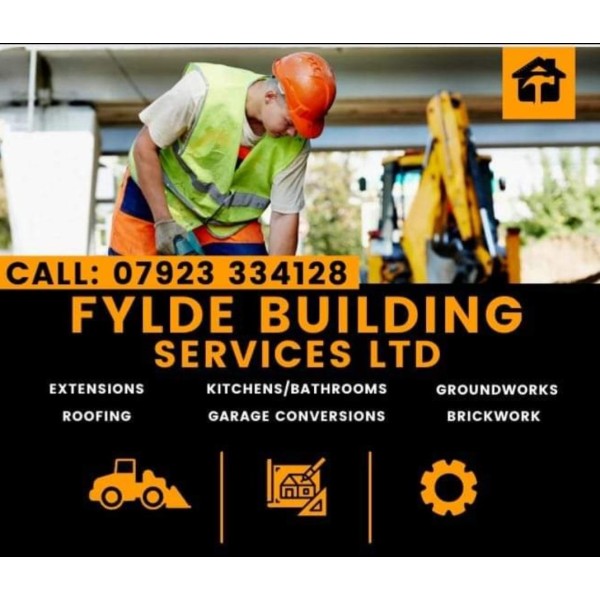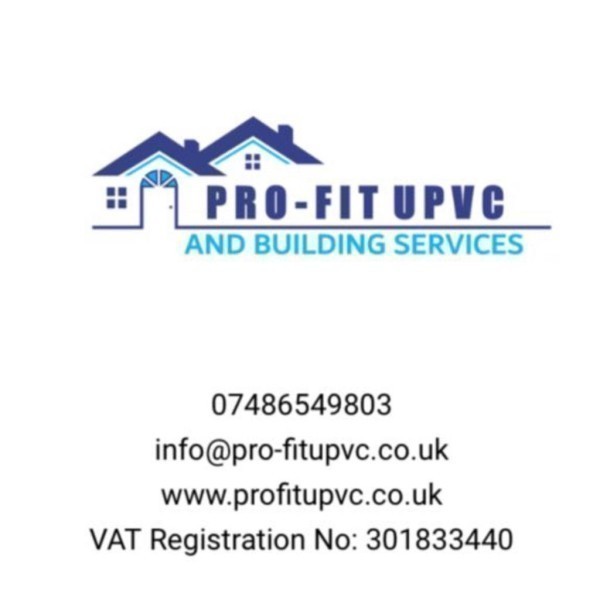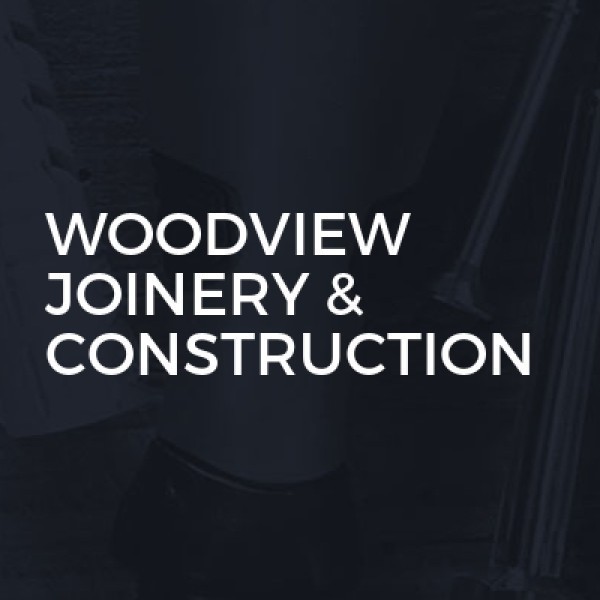Loft Conversions in Colne
Manson Electrical Solutions Ltd is a premier choice for those seeking expert electricians and builders in Ludden... read more »
Welcome to Boardwalk Construction Ltd, your premier choice for construction services in Pellon and throughout West Yorkshire. As a distin... read more »
Welcome to Brandon Green Homes T/a Renovaserve Ltd, your trusted partner for all your buildin... read more »
Welcome to Fylde Building Services, your go-to experts for all your building and renovation needs in Fleetwood and across Lancashire. As... read more »
Pro-fit UPVC Ltd: Your Trusted Builders and Roofers in Hall Green, Lancashire
Welcome to Pro-fit UPVC Ltd, your... read more »
Welcome to Woodview Joinery & Construction, your trusted partner for all your building and renovation needs in Stalmine Moss Side and acr... read more »
Welcome to DPF Joinery, your premier choice for builders, carpenters, roofers, renovations, joiners, extension builders, loft conversions... read more »
Welcome to Argo Consultants Ltd, your go-to experts for builders, extension builders, and architectural services in Fleetwood, Lancashire... read more »
Welcome to GSM Design & Development LTD, your go-to experts for all building and landscaping needs in Denholme Clough and across West Yor... read more »
Welcome to Anchor Construction Group Ltd, your trusted experts for all construction and renov... read more »
Welcome to Elevate Construction Group Ltd, your trusted partner for all your building needs in Leyland and throu... read more »
Welcome to Everarch Construction Ltd, your premier choice for Builders, Extension Builders, Renovations, Carpenters, and Driveway Contrac... read more »
JRP Roofing And Maintenance is your go-to solution for all tradespeople services in Sunnyhurst and thro... read more »
Welcome to Fylde Brickwork Ltd, your trusted partner... read more »
Waterhouse Builders Ltd, a reputable... read more »
Welcome to Design & Build With Fox Kitchens, your pre... read more »
Welcome to Coastal Joinery, your trusted partner for... read more »
Welcome to Hall's Home Improvements and Renovations L... read more »
Welcome to Design And Build, your trusted partner for... read more »
Search Loft Conversions in places nearby
- Loft Conversions in Accrington
- Loft Conversions in Adlington
- Loft Conversions in Bacup
- Loft Conversions in Bamber Bridge
- Loft Conversions in Barnoldswick
- Loft Conversions in Barrowford
- Loft Conversions in Blackburn
- Loft Conversions in Blackpool
- Loft Conversions in Brierfield
- Loft Conversions in Burnley
- Loft Conversions in Carnforth
- Loft Conversions in Chorley
- Loft Conversions in Church
- Loft Conversions in Clayton-Le-Moors
- Loft Conversions in Cleveleys
- Loft Conversions in Clitheroe
- Loft Conversions in Darwen
- Loft Conversions in Earby
- Loft Conversions in Fleetwood
- Loft Conversions in Freckleton
- Loft Conversions in Fulwood
- Loft Conversions in Great Harwood
- Loft Conversions in Haslingden
- Loft Conversions in Heysham
- Loft Conversions in Kirkham
- Loft Conversions in Lancaster
- Loft Conversions in Leyland
- Loft Conversions in Longridge
- Loft Conversions in Lytham St Anne's
- Loft Conversions in Morecambe
- Loft Conversions in Nelson
- Loft Conversions in Ormskirk
- Loft Conversions in Oswaldtwistle
- Loft Conversions in Padiham
- Loft Conversions in Poulton-Le-Fylde
- Loft Conversions in Preston
- Loft Conversions in Rawtenstall
- Loft Conversions in Rishton
- Loft Conversions in Skelmersdale
- Loft Conversions in Thornton
- Loft Conversions in Trawden
- Loft Conversions in Whitworth
Understanding Loft Conversions in Colne
Loft conversions in Colne have become a popular choice for homeowners looking to maximise their living space without the hassle of moving. This charming town, nestled in the heart of Lancashire, offers a unique blend of historical architecture and modern living, making loft conversions an attractive option for enhancing property value and functionality. In this article, we'll explore the ins and outs of loft conversions in Colne, providing you with a comprehensive guide to transforming your attic into a usable space.
What is a Loft Conversion?
A loft conversion is the process of transforming an unused attic space into a functional room, such as a bedroom, office, or playroom. This type of renovation is particularly appealing in Colne, where many homes feature traditional pitched roofs that lend themselves well to conversion. By utilising the existing structure, homeowners can create additional living space without altering the footprint of their home.
Types of Loft Conversions
There are several types of loft conversions to consider, each with its own benefits and limitations. The most common types include:
- Dormer Loft Conversion: This involves extending the existing roof to create additional headroom and floor space. Dormer conversions are popular due to their versatility and ability to accommodate various room layouts.
- Hip-to-Gable Loft Conversion: Ideal for semi-detached or detached homes with a hipped roof, this conversion extends the sloping side of the roof to create a vertical gable wall, increasing the usable space.
- Mansard Loft Conversion: Typically found in urban areas, this conversion involves altering the entire roof structure to create a flat roof with steeply sloping sides, maximising space.
- Velux Loft Conversion: The simplest and most cost-effective option, this conversion involves installing roof windows to bring natural light into the attic without altering the roof structure.
Benefits of Loft Conversions in Colne
Loft conversions offer numerous advantages for homeowners in Colne. Here are some key benefits:
- Increased Property Value: A well-executed loft conversion can significantly boost the value of your home, making it an excellent investment.
- Additional Living Space: Whether you need an extra bedroom, a home office, or a playroom for the kids, a loft conversion provides the flexibility to create the space you need.
- Preservation of Outdoor Space: Unlike extensions, loft conversions do not encroach on your garden or outdoor areas, preserving your property's exterior space.
- Energy Efficiency: Modern loft conversions often include improved insulation, which can enhance your home's energy efficiency and reduce heating costs.
Planning Permission and Building Regulations
Before embarking on a loft conversion in Colne, it's essential to understand the planning permission and building regulations involved. While many loft conversions fall under permitted development rights, certain conditions must be met:
- The conversion must not exceed 40 cubic metres for terraced houses or 50 cubic metres for detached and semi-detached houses.
- Materials used should be similar in appearance to the existing house.
- No extension should be higher than the highest part of the existing roof.
- Balconies, verandas, or raised platforms are not permitted without planning permission.
Building regulations ensure that the conversion is structurally sound and safe. Key areas covered include fire safety, insulation, and structural integrity. It's advisable to consult with a professional architect or builder to ensure compliance with all regulations.
Choosing the Right Loft Conversion Specialist
Selecting a reputable loft conversion specialist in Colne is crucial to the success of your project. Here are some tips to help you make the right choice:
- Experience and Expertise: Look for a company with a proven track record in loft conversions, particularly in the Colne area.
- References and Reviews: Ask for references from previous clients and check online reviews to gauge customer satisfaction.
- Detailed Quotations: Obtain detailed quotations from multiple specialists to compare costs and services offered.
- Insurance and Guarantees: Ensure the company has adequate insurance coverage and offers guarantees on their work.
Designing Your Loft Conversion
Designing your loft conversion is an exciting part of the process, allowing you to create a space that meets your specific needs and preferences. Consider the following design elements:
- Room Functionality: Determine the primary use of the space, whether it's a bedroom, office, or recreational area, to guide your design choices.
- Lighting and Ventilation: Incorporate windows, skylights, and ventilation systems to ensure the space is bright and airy.
- Storage Solutions: Maximise storage with built-in wardrobes, shelving, and under-eaves storage to keep the space organised.
- Interior Décor: Choose a colour scheme and furnishings that complement the rest of your home while reflecting your personal style.
Cost Considerations for Loft Conversions
The cost of a loft conversion in Colne can vary significantly depending on the type of conversion, the size of the space, and the materials used. On average, you can expect to pay between £20,000 and £50,000. Factors influencing the cost include:
- Type of Conversion: Dormer and mansard conversions tend to be more expensive than Velux conversions due to the structural changes involved.
- Size and Complexity: Larger and more complex projects will naturally incur higher costs.
- Materials and Finishes: High-quality materials and bespoke finishes will increase the overall cost.
- Professional Fees: Architect, surveyor, and builder fees should be factored into your budget.
Financing Your Loft Conversion
Financing a loft conversion can be a significant investment, but there are several options available to help manage the cost:
- Home Improvement Loans: Many banks and financial institutions offer loans specifically for home improvements, including loft conversions.
- Remortgaging: Remortgaging your home to release equity can provide the funds needed for your conversion.
- Personal Savings: Using personal savings can be a cost-effective way to finance your project without incurring interest charges.
- Government Grants: In some cases, government grants may be available for energy-efficient home improvements, which could offset some costs.
Common Challenges and Solutions
While loft conversions offer numerous benefits, they can also present challenges. Here are some common issues and their solutions:
- Limited Headroom: If headroom is an issue, consider a dormer or mansard conversion to increase space.
- Access and Stairs: Designing a staircase that fits within the existing layout can be challenging. Consult with a professional to find the best solution.
- Structural Integrity: Ensure the existing structure can support the conversion by consulting with a structural engineer.
- Planning Delays: Navigating planning permission and building regulations can be time-consuming. Work with experienced professionals to streamline the process.
Case Studies of Successful Loft Conversions in Colne
To inspire your own project, let's take a look at some successful loft conversions in Colne:
- The Modern Retreat: A detached home in Colne was transformed with a hip-to-gable conversion, creating a spacious master suite with an en-suite bathroom and walk-in wardrobe.
- The Family Playroom: A terraced house utilised a dormer conversion to create a bright and airy playroom for the children, complete with built-in storage and a reading nook.
- The Home Office: A semi-detached property underwent a Velux conversion, providing a quiet and comfortable home office with stunning views of the surrounding countryside.
Environmental Considerations
As environmental awareness grows, many homeowners are seeking sustainable options for their loft conversions. Consider the following eco-friendly practices:
- Insulation: Use high-quality insulation materials to improve energy efficiency and reduce heating costs.
- Natural Light: Maximise natural light with strategically placed windows and skylights to reduce reliance on artificial lighting.
- Sustainable Materials: Choose sustainable and locally sourced materials for construction and finishes.
- Energy-Efficient Appliances: Incorporate energy-efficient lighting and appliances to minimise environmental impact.
Frequently Asked Questions
- Do I need planning permission for a loft conversion in Colne? Many loft conversions fall under permitted development rights, but it's essential to check with your local council to ensure compliance.
- How long does a loft conversion take? The duration of a loft conversion can vary, but most projects take between 6 to 12 weeks to complete.
- Can all lofts be converted? Not all lofts are suitable for conversion. Factors such as headroom, roof structure, and access will determine feasibility.
- Will a loft conversion add value to my home? Yes, a well-executed loft conversion can significantly increase the value of your property.
- How can I ensure my loft conversion is energy efficient? Use high-quality insulation, maximise natural light, and choose energy-efficient appliances to enhance energy efficiency.
- What is the cost of a loft conversion in Colne? Costs can vary, but you can expect to pay between £20,000 and £50,000, depending on the type and complexity of the conversion.
Final Thoughts on Loft Conversions in Colne
Loft conversions in Colne offer a fantastic opportunity to enhance your living space, increase property value, and create a home that meets your needs. By understanding the different types of conversions, planning requirements, and design considerations, you can embark on a successful project that transforms your attic into a functional and beautiful space. With the right planning and professional guidance, your loft conversion can become a valuable addition to your home, providing you with the extra space and comfort you've been dreaming of.
Send a message


















